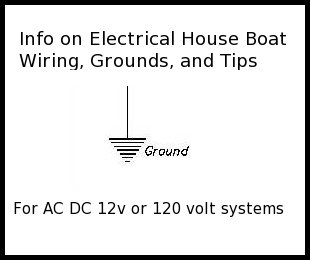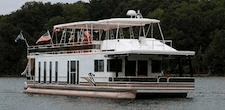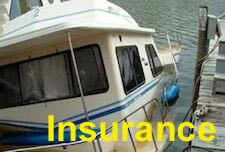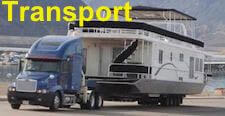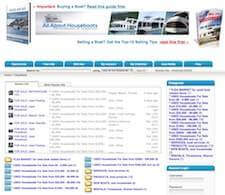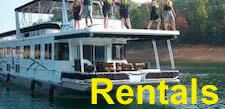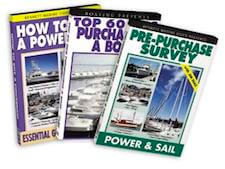
Houseboat Tips and Information - Marine Grounding Electrical System
by Joe
(Mt. Home, AR)
Any houseboat tips or information for grounding marine electrical systems? When wiring houses, etc. we drive a copper rod into the ground for the grounding (bare copper wire) of the system.
I know there a some major differences when it comes to wiring a house, and wiring a houseboat. But how do you ground an electrical system on a houseboat?
Thanks for any info, Joe.
 increase sales and profits with targeted traffic? Act now to get our 1/2 price sale, limited offer |
Reply - Answer
Well Joe, that's a good question since there are some important differences when it comes to wiring a house, and wiring a houseboat.
You will find that in the majority of boats, they use a common grounding buss bar to ground the 12 and 120 volts systems. What this means is that when you're connect to shore power, you're using the city supplied power lines to provide ground continuity.
When you're disconnected from the shore power, you're using the common ground bus bar which is eventually leading to the water ground, and this is commonly connected through your drivetrain or underwater hardware.
If you're looking to go a little deeper on marine electrical systems, have a look at the Marine Electrical Checklist, it has a lot of great information and answers to popular electrical questions.
Lastly, hopefully some of our readers will share and post comments about their marine electrical houseboat tips and experiences. Feel free to use the "Click here to post comments." link found near the bottom of this page.
Thanks again for sharing, IAN from all-about-houseboats
Free Bonus Offer |
Comments for Houseboat Tips and Information - Marine Grounding Electrical System
|
||
|
||
|
||
|
||
|
||
|
||
|
||
|
||
|
||
